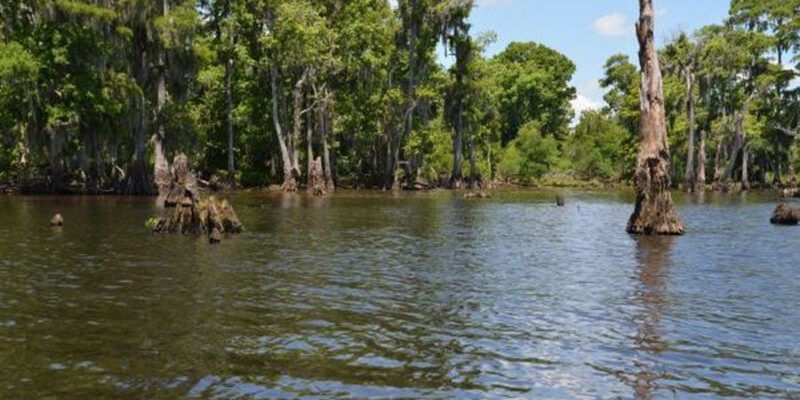(By Victor Skinner/The Center Square) — Local government officials continued to raise concerns about carbon capture in Lake Maurepas, while academics and state regulators testified about the technology’s safety this week.
A legislative task force on Local Impacts of Carbon Capture and Sequestration heard testimony from state and local officials, as well as academics who study the technology, during a meeting in Baton Rouge.
The Monday hearing was the second in a series, with prior testimony from concerned residents and a final meeting slated to hear from the industry. Much of the testimony in the first two meetings has centered on Lake Maurepas, where Air Products is developing “the world’s largest permanent carbon dioxide endeavor to date” with the help of millions in taxpayer-funded business incentives.
The Lake Maurepas project is one of dozens proposed across the state.
Louisiana Commissioner of Conservation Monique Edwards told the task force her office is better equipped to manage Class 6 injection wells than the Environmental Protection Agency and outlined goals for oversight that include balancing the preservation of natural and cultural resources with business development and the state’s goal of becoming a leader in transforming the energy sector.
“The technology of carbon capture has the potential to meet all of these standards and can be best done by Louisiana’s own office of conservation,” she said. “Our office can and will provide a (more) robust and efficient review of the applications and the oversight of operations than the EPA can, and without sacrificing protective standards.”
Edwards noted that her office worked with the Laser Interferometer Gravitational Wave Observatory to relocate a carbon capture structure that was set to go in near the facility over concerns it could impact operations.
John Flake, a chemical engineering professor at LSU, testified about the safety of carbon capture projects in general, noting existing facilities in Illinois and Alberta, Canada that have each handled more than 10 million metric tons of CO2.
Colleague Mehdi Zeidouni, a petroleum engineering professor at LSU, described the risks of storing carbon dioxide underground, how it dissipates into rock formations, and the potential for leakage.
“I don’t expect … with the strict Class 6 regulations in place, that something goes unnoticed,” he said.
Other testimony came from local elected officials in Livingston Parish, the town of Springfield, and their incoming representative in Baton Rouge.
“We have a lot of concerns,” Livingston Parish President-elect Randy Delatte said. “Our concerns are the people not being heard, and we’d really, really love you all to make the same exception that you did to (the observatory) for the people around Lake Maurepas.”
The project, he said, is already “causing problems to our lake and the people trying to make a living from it,” pointing to fish kills amid construction that forced a response from the Department of Natural Resources.
Advertisement
“Let the people make the choice. Let them vote on it. Let them have a say in it,” Delatte said.
Livingston Parish councilman turned state representative-elect Shane Mack had other significant concerns centered on drinking water and the potential fallout from a catastrophic event on a lake that draws up to 1,000 to its shores on any given summer weekend.
“We need to do it in an area with … the lowest possible risk,” he said.
Mack told the task force he’s already preparing legislation to outlaw Class 6 wells on recreational lakes and to allow local governments to establish reasonable regulations on operators.
Others including representatives from Springfield pointed to the potential economic impact from dozens of large platforms on Lake Maurepas that would impede the world’s largest poker run and the local businesses that depend on it.
“We don’t know of one person that in favor of the carbon capture in Lake Maurepas,” alderman Tracy Bryson said. “It’s a big source of our recreation, our relaxation, not to mention our crabbers, our fishermen, who support their families out in this lake.”
The task force is expected to collect testimony from industry executives in a third meeting, likely in January, before offering recommendations in a report to the Senate Committee on Natural Resources for the next legislative session.
Advertisement
Advertisement

